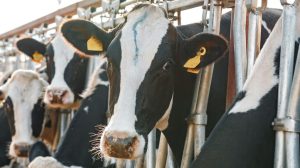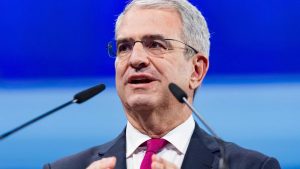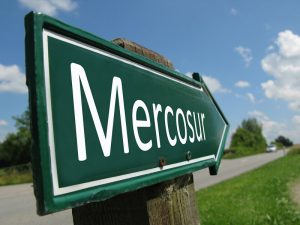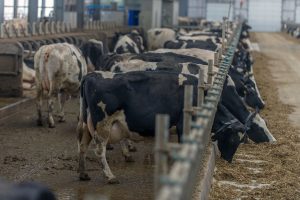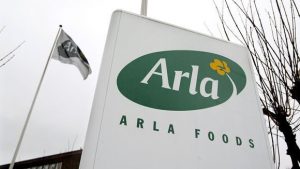
It’s become par for the course for the powerful to blame “cancel culture” for personal or political crises. In recent months, Putin has accused the West of attempting to cancel the Russian state on account of its waging war in Ukraine. Ex-governor of New York Andrew Cuomo has attributed his demise after sexual harassment allegations to cancel culture. Now, the dairy industry is blaming vegan “cancel culture” for its own woes.
In April, Arla Foods, Britain’s largest dairy company, launched a campaign – backed by their own research – arguing that the rise of veganism among young people is responsible for the dairy industry’s increasing precarity. Titled “Don’t Cancel the Cow”, the campaign suggests that people’s choices not to consume dairy are ill-informed, and argues for “the need to balance the conversation when it comes to food and the health of our planet”.
Arla’s campaign is based on proprietary research that has found that 49% of the UK would change their diet based on what they read on social media. Gen Z is under particular pressure to go vegan, the Arla research found: although 70% would prefer to continue consuming dairy, half feel ashamed to order it in public in front of their peers, and an “alarming” 57% of Zoomers plan to give up dairy entirely.
Arla’s campaign has gained little traction beyond conservative outlets such as The Telegraph and GB News. Yet according to Kai Heron, a political economy researcher with a special interest in dairy farming, Don’t Cancel The Cow is significant, reflecting the industry’s “desperation” in an increasingly inhospitable economic climate and general tendency to “play the victim”.
For over two decades, the economic climate has become increasingly harsh for dairy farmers. Prior to the 1993 Agricultural Act, farmers were guaranteed a minimum price for milk by the Milk Marketing Board. Doorstep delivery, which is more profitable than retail sales, made up almost half of the retail milk market in 1995; it now makes up just 3%. Since the dissolution of the Milk Marketing Board in 1994, UK dairy farmers have suffered record losses, with supermarkets pushing prices to all-time lows.
Long before the recent crisis in Ukraine, rising inflation and exploding energy prices made diesel, fertiliser and animal feed much more costly, amounting to hundreds of thousands of pounds more in costs for an average-sized farm and tightening already tiny profit margins. Dairy farm profits fell by 50% in 2018-2019, and have not recovered since. Unsurprisingly, this has led to a mass exodus from the sector: in 1995, there were over 35,000 dairy producers in the UK; by 2020, just under 12,000.
These challenges have been compounded by Brexit. The EU’s Common Agricultural Policy subsidy scheme, of which dairy farmers were the main beneficiaries, ensured that farms could stay afloat whilst also producing an oversupply of milk to keep prices down for the consumer. Prior to Brexit – which 60% of dairy farmers declared they would vote for – almost 40% of an average dairy farm’s income came from EU subsidies. The UK government is now planning to remove subsidies altogether, on the grounds that they help small, less profitable farms stay afloat and are therefore uncompetitive.
Where, for decades, previous governments have supported farmers to avoid land consolidation, in removing subsidies Heron believes the current government aims to consolidate agricultural land into the hands of fewer people in the hopes of making the industry more competitive. Two decades ago, an average dairy farm had around 80 cows; today – with bigger farms increasingly engulfing smaller ones – an average farm has around 200, and the number of “mega-farms” (with herds of 700 or more cows) is increasing.
Alex Heffron is a small-scale dairy farmer in Pembrokeshire. He says the Arla campaign reflects an industry that “feels like it’s under siege”. He notes that, rather than blaming the government or the vagaries of capitalism, dairy farmers are prone to “scapegoat” vegans as “this sort of extremist lobby [that is] going to lead to the collapse of the dairy industry”. The Arla campaign is only the most recent instance of this: since February 2018, the dairy industry has promoted “Februdairy” in response to the rise of Veganuary.
Chas Newkey-Burden is a writer and animal liberationist. “For dairy bosses to say we shouldn’t ‘cancel the cow’ is gaslighting, pure and simple,” he argues, citing the “traumatic” process in industrialised dairy farming of separating cows from their calves within hours or days of birth – a process the general public is becoming increasingly aware of thanks to recent films such as Cow and Cowspiracy. Newkey-Burden believes that “dairy farmers are suddenly terrified because people are seeing what they do just as plant-based alternatives are growing in quality and popularity”.
Indeed, the market for plant-based alternatives is booming. One in three Brits now drinks plant-based milk, up from a quarter in 2020, a trend that the European Union has apparently attempted to disrupt. In 2017, the European Parliament banned the words “cheese” or “milk” for plant-based alternatives, while a recent (unsuccessful) amendment to existing regulations attempted to prohibit the “imitation or evocation” of dairy products – for example, vegan yoghurt being sold in yoghurt pots.
These attempts to make vegan alternatives “less appealing”, says Heron, extend to Big Dairy routinely funding research that finds vegan diets are harmful to humans – for example, that milk alternatives lead to vitamin D deficiencies in children, that full-fat milk promotes a healthy weight and that children who drink cow’s milk grow taller than those who drink alternatives – in ways that impartial research does not corroborate.
With only around 2-3% of the population cutting out dairy, vegans aren’t what’s hurting dairy profit margins; they’re just an easy target. Younger generations are more likely to be vegan – and considering the dairy industry predominantly managed by middle-aged white men, veganism has become the battleground of an intergenerational culture war.
“I find it hard to imagine how a lot of farmers will continue given the macroeconomic situation,” says Heffron. He doesn’t lament the likely demise of intensive commercial dairying, however. On his own agroecological, free-range farm, the 10 cows and their calves are not separated within hours or days after birth but left together until a more natural weaning age of four or five months. Heffron claims that having seen how his farm is run, some vegans have even decided to drink the milk his cows produce.
Still, Heffron doubts the scalability of his methods. Whilst in his experience many industrial farm owners are sceptical about alternative approaches to dairying, the reality is that even if they wanted to, transitioning big farms to new methods is largely unaffordable. While slow change is happening on some farms – including adopting more sustainable practices such as agroforestry – by and large the industry is going for greenwashing as opposed to genuine transformation.
Heron says that Arla’s Don’t Cancel The Cow campaign has little to do with veganism. Rather, with farmers struggling to turn a profit and facing criticism from the public, he says, the campaign represents a tendency among Big Dairy to “blame consumers” for the increasing unviability of dairy farming rather than the “capitalist structures of production that exploit farmers and workers alike”. This is particularly true now: with the cost of living mounting, Heron believes that farmers and other workers should be looking for “opportunit[ies] to build solidarity” for a more liveable future for everyone – including cows.
Sophie K Rosa is a freelance journalist. In addition to Novara Media, she writes for the Guardian, VICE, Open Democracy, CNN, Al Jazeera and Buzzfeed.





